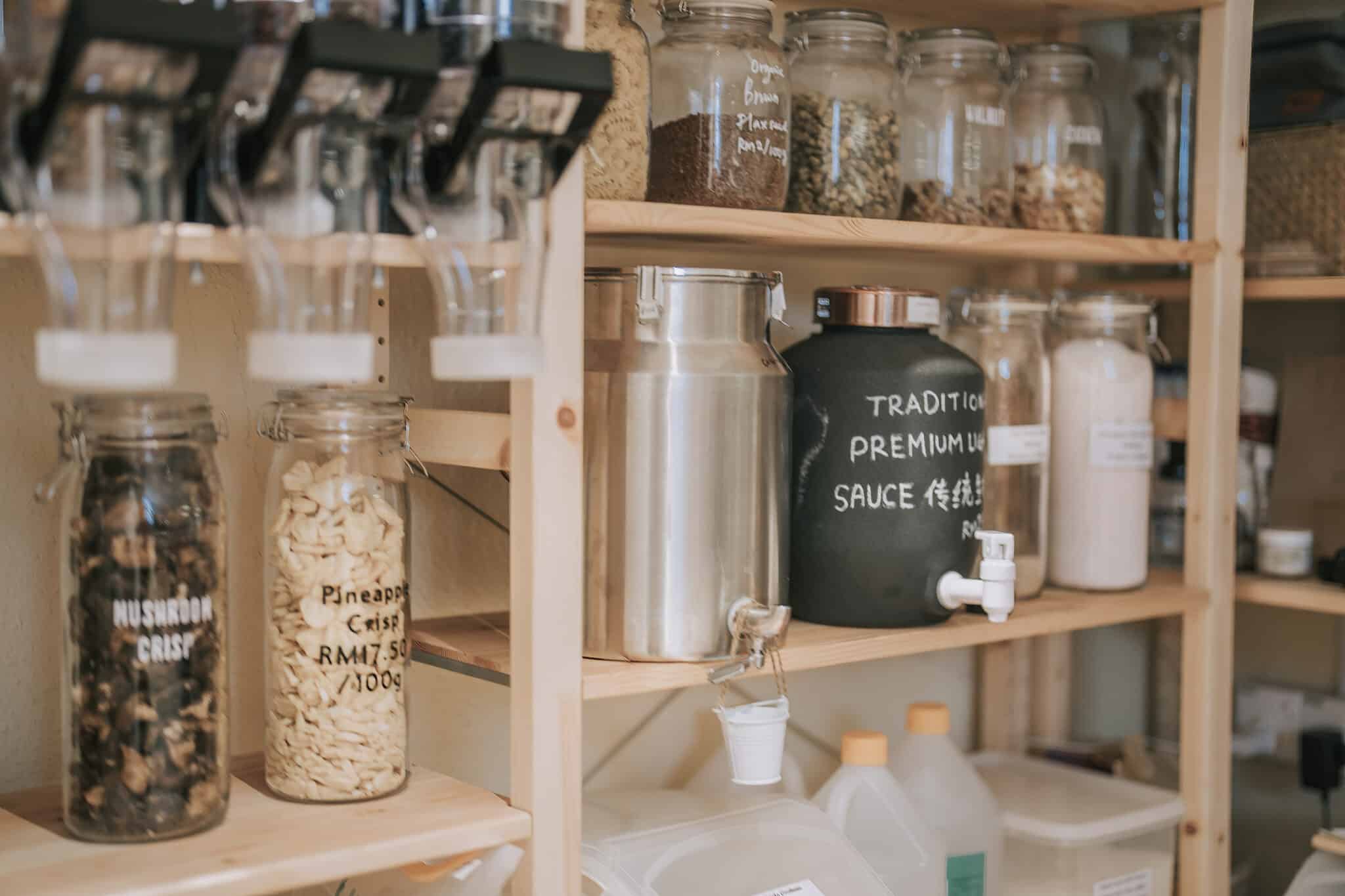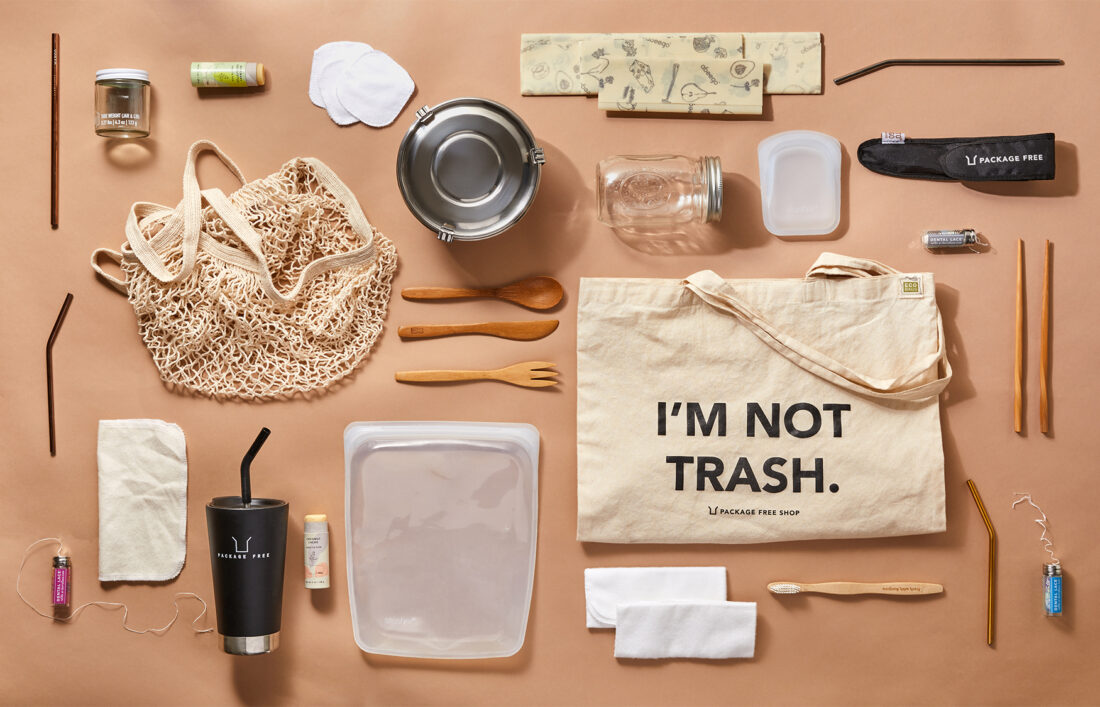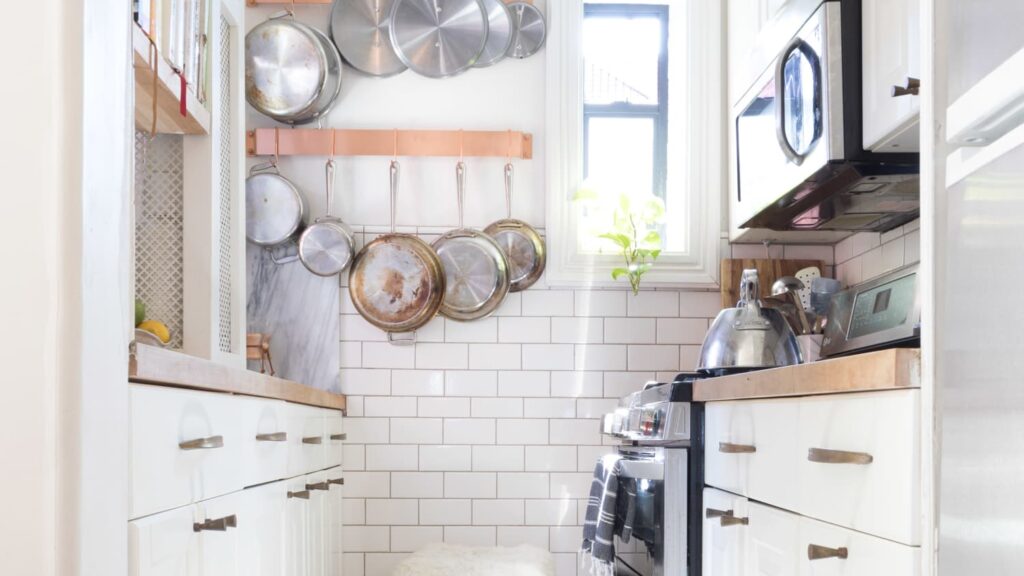Looking for the best zero-waste products for a sustainable kitchen living? Discovering the best zero-waste products can help reduce your environmental impact and create a more sustainable lifestyle.
From reusable food storage containers to compostable cleaning brushes, there are numerous products available that can help minimize waste in the kitchen. By making informed choices and integrating these zero-waste products into your kitchen, you can contribute to a healthier planet and reduce your carbon footprint.
Embracing sustainable living in the kitchen not only benefits the environment but also promotes a more mindful and intentional approach to everyday tasks. Let’s explore the top zero-waste products that can transform your kitchen into an eco-friendly space while reducing unnecessary waste.

Credit: www.ecowatch.com
Benefits Of Sustainable Kitchen Living
Discover the numerous benefits of embracing sustainable kitchen living! By making small changes in our daily routines, we can contribute to a healthier planet while enjoying a more eco-friendly and zero-waste lifestyle. Let’s explore some of the key advantages below:
Reducing Plastic Waste
One of the major benefits of sustainable kitchen living is the significant reduction in plastic waste. Plastic is a major contributor to environmental pollution, particularly as single-use plastics often end up in landfills or our oceans. By adopting sustainable alternatives, such as using reusable bags, bottles, and food containers, we can drastically minimize our plastic footprint.
Conserving Energy And Resources
Sustainable kitchen living also plays a vital role in conserving energy and valuable resources. By opting for energy-efficient appliances, such as eco-friendly dishwashers and refrigerators, we can significantly reduce our energy consumption. Furthermore, embracing practices like composting organic waste, using water-saving faucets, and recycling food packaging helps conserve precious resources, such as water and food.
Promoting Healthy Living
In addition to benefiting the environment, sustainable kitchen living promotes a healthier lifestyle. By choosing organic and locally sourced produce, we support sustainable farming practices, reduce exposure to harmful pesticides, and ensure our meals are packed with essential nutrients. Furthermore, utilizing non-toxic cleaning products and cookware reduces the risk of potentially harmful chemicals entering our bodies, thereby safeguarding our overall well-being.
Zero-waste Kitchen Products
When it comes to creating a sustainable kitchen, the use of zero-waste products is crucial. By incorporating reusable and compostable items, eco-friendly cleaning supplies, and smart appliances, you can significantly reduce your environmental footprint. Let’s delve into the best zero-waste kitchen products that can make a positive impact on the planet and your lifestyle.
Reusable Food Storage
Investing in reusable food storage solutions such as silicone storage bags, glass containers, and stainless steel lunch boxes can minimize the need for single-use plastic bags and containers. These products are not only eco-friendly but also provide a practical and durable way to store and preserve food items.
Compostable Kitchen Essentials
Embracing compostable kitchen essentials like biodegradable trash bags, bamboo utensils, and compost bins allows for the proper disposal of organic waste. These products facilitate the composting process and contribute to the reduction of landfill waste, promoting a more sustainable kitchen environment.
Eco-friendly Cleaning Supplies
Utilizing eco-friendly cleaning supplies such as refillable glass spray bottles, biodegradable cleaning brushes, and natural cleaning solutions not only reduces the use of harsh chemicals but also minimizes plastic waste from disposable cleaning products. These alternatives are gentle on the environment and your home.
Smart Appliances
Integrating smart appliances that are energy-efficient and offer innovative features can enhance the sustainability of your kitchen. From water-saving dishwashers to energy-star rated refrigerators, these appliances are designed to minimize resource consumption and promote a more eco-conscious way of living.
Choosing Sustainable Materials
When it comes to reducing waste and choosing sustainable materials for your kitchen, selecting the right products can make a significant impact. Whether you’re looking to minimize your environmental footprint or simply embrace a more eco-friendly lifestyle, the materials you opt for can play a crucial role. Here, we’ll delve into various sustainable materials that are ideal for a zero-waste kitchen.
Bamboo
Bamboo is an excellent eco-friendly alternative for kitchen products. Being one of the fastest-growing plants globally, it’s a highly sustainable material. Additionally, bamboo is durable, easy to clean, and naturally anti-bacterial, making it perfect for items such as cutting boards, utensils, and even dish brushes.
Stainless Steel
Utilizing stainless steel products in the kitchen not only offers durability, but also reduces the need for disposable items. Opt for stainless steel straws, food storage containers, and lunch boxes to cut down on single-use plastics in your kitchen.
Glass
Glass is a sustainable material that is both versatile and recyclable. When choosing glass containers for food storage, you can decrease the reliance on disposable plastic containers. Additionally, using glass jars for bulk ingredient storage can also minimize waste.
Silicone
Silicone is a durable and heat-resistant material, making it ideal for a range of kitchen products. From reusable baking mats to storage bags, silicone offers an eco-friendly alternative to disposable options.
Natural Fibers
Consider using natural fibers such as cotton, hemp, or linen for items like dish towels, aprons, and produce bags. These materials are biodegradable and can replace single-use paper towels and plastic bags in the kitchen.

Credit: trashisfortossers.com
Tips For Implementing Zero-waste Practices
Discover the secrets to a sustainable kitchen with our top tips for implementing zero-waste practices. Unveil the best zero-waste products that will help you reduce your environmental impact and create a more sustainable lifestyle.
Implementing zero-waste practices in your kitchen is not only environmentally-friendly but also cost-effective. By following these simple yet effective tips, you can significantly reduce your kitchen’s waste production and contribute to a more sustainable lifestyle. Let’s dive into the best practices for zero-waste living.
Meal Planning And Bulk Shopping
One of the key strategies to minimize waste in your kitchen is through meal planning and bulk shopping. By planning your meals in advance, you can avoid unnecessary food purchases and reduce the risk of food spoilage. When you plan your meals, consider incorporating versatile ingredients that can be used in multiple dishes, allowing you to use them before they go bad.
Bulk shopping is another smart way to minimize packaging waste. Purchasing staple ingredients in bulk quantities not only reduces the amount of plastic and paper waste but also saves you money in the long run. Look for grocery stores or markets that offer bulk options, such as grains, nuts, and spices. Bring your own reusable bags or containers to avoid unnecessary packaging.
Composting And Food Recycling
Composting is a fantastic way to reduce your kitchen waste and create nutrient-rich soil for your garden. Set up a small compost bin in your backyard or consider using indoor composting methods if you don’t have outdoor space. Compost food scraps like fruit and vegetable peels, coffee grounds, and eggshells to divert them from landfills and contribute to a more sustainable ecosystem.
In addition to composting, food recycling can be another great option, especially for items that cannot be composted. Research local recycling programs and find out if there are any facilities in your area that accept food waste for recycling. Some organizations even collect food waste separately, which is then used for anaerobic digestion or converted into renewable energy sources.
Reducing Food Waste
To further minimize waste, be mindful of your food consumption and take steps to reduce food waste. Start by evaluating your portion sizes and serving only what you need. Leftovers can be repurposed into new dishes or frozen for future meals. Implement a “first-in, first-out” rule in your pantry and refrigerator to use up older ingredients before opening new ones. Being mindful of expiration dates and practicing proper food storage can also help prevent food spoilage and unnecessary waste.
Mindful Consumption
Mindful consumption is essential to zero-waste living. Before making any purchase, ask yourself if you truly need the item and how long it will serve its purpose. Opt for products with minimal packaging or packaging that is recyclable or biodegradable. Reduce the use of single-use items such as plastic cutlery and paper plates by choosing reusable alternatives. By making conscious choices and embracing a minimalist mindset, you can significantly reduce both your kitchen waste and your ecological footprint.

Credit: m.facebook.com
Frequently Asked Questions On Sustainable Kitchen Living: Unveiling The Best Zero-waste Products
Is Living A Zero-waste Lifestyle Difficult?
Living a zero-waste lifestyle may seem challenging at first, but with proper planning and simple changes, it can be achievable and rewarding. By making conscious choices like using reusable products, reducing food waste, and recycling, individuals can significantly reduce their impact on the environment.
What Are Some Essential Zero-waste Kitchen Products?
There are several essential zero-waste kitchen products that can help individuals reduce waste. Some examples include reusable food storage bags, stainless steel or glass food containers, reusable silicone food wraps, bamboo utensils, and beeswax wraps. These products can replace single-use plastics and help minimize kitchen waste.
Are Zero-waste Products Expensive?
While some zero-waste products may have a higher upfront cost compared to disposable alternatives, they can save money in the long run. By investing in durable, reusable items, individuals can reduce their need to repurchase disposable products regularly. Additionally, opting for zero-waste alternatives can help individuals save money by reducing the amount of waste they generate.
Conclusion
Embracing a sustainable lifestyle in the kitchen is crucial for reducing waste and protecting our environment. These zero-waste products not only help us minimize single-use plastics but also promote a healthier, greener way of living. By incorporating these eco-friendly alternatives into our daily routines, we can contribute to the preservation of our planet for future generations.
Let’s make sustainable choices and create a better world for everyone.

